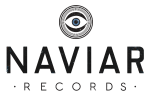Having spent my childhood in the Italian countryside, I had the opportunity to experience the rise of digital music in slow-motion.
I bought my first CD in 1997. I was 9 at that time, but I still remember when my father took me to the local music shop to buy Offspring’s Americana. He bought Nirvana’s Unplugged for himself, on tape. At home, we used our old Aiwa Hi-fi system to play vinyl from my parents’ vast collection of classical music (my mother was an opera singer) and psychedelic rock (my father was a teenager in the late 60’s).
Two years later I started middle school, and my interest in music became an obsession. As my music taste shifted towards heavier sounds, I began to realize that CDs were often difficult to find and always very expensive: and that’s when I came across file-sharing. A friend of a friend could access a website where you could get any album you wanted, for free and in a matter of hours: his music collection, made exclusively of burned CDs, was immense. The thought of all this being illegal most likely didn’t even cross my mind at the time: it was a revelation, something totally unexpected but that opened the door to limitless possibilities; I could have complete access to the music I wanted, quickly, at no cost. By the time I was in high school (2002), anyone my age knew how to get anything digital for free.

The digital music revolution is the story of my middle school years, and How Music Got Free by Stephen Richard Witt tells the story of the most important (and mostly unknown) players in this revolution.
Karlheinz Brandenburg, a German audio engineer at the Fraunhofer Institute, whose research helped to create the breakthrough format of compressed audio – the MP3; Dell Glover, a worker at Polygram compact disc manufacturing plant in North Carolina by day and an album leaker by night, whose leaks fueled the rising MP3 Scene; and Doug Morris, the CEO of Universal Music. Their stories are so critical and deeply tied together, that by simply narrating them in chronological order the author sheds a light on what is probably the most obscure time in the creative industry, from the development of digital audio compression to its subsequent impact on music.
Compelling and entertaining, How Music Got Free is a must-read for anyone interested in the transitions between one era in the music business and another: when the decisions made by the music industry, courts, and consumers changed the way we think about and approach music today.
How Music Got Free: The End of an Industry, the Turn of the Century, and the Patient Zero of Piracy by Stephen Richard Witt is available on Amazon
